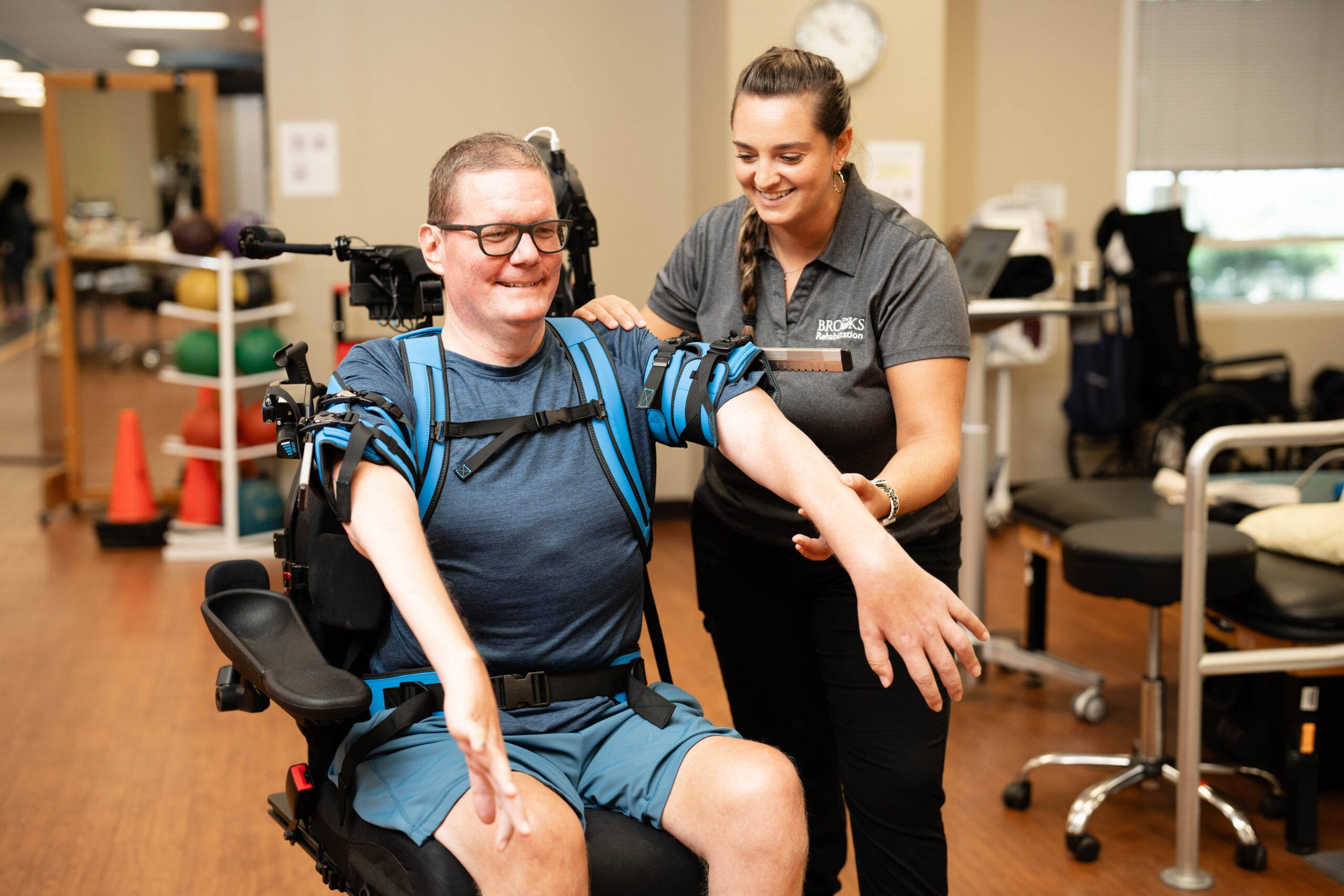Our services
Need physical therapy, occupational therapy, speech therapy, cognitive or behavioral therapy? We have the right care setting with the right service to empower you to achieve your highest level of recovery.
Conditions we treat
As a leader in physical rehabilitation, we provide comprehensive rehabilitative services for multiple physical and neurological conditions for both adults and pediatric patients.
Get started at Brooks Rehabilitation
Latest News and Health Resources from Brooks
Education and guidance to support your recovery
Q&A with Katelyn W. Jordan, OD, FAAO, FNAP
Katelyn W. Jordan, OD, FAAO, FNAP, director of Vision Rehabilitation Services, has been with Brooks for 12 years. Dr. Jordan graduated with her doctor of optometry, Magna Cum Laude,...





